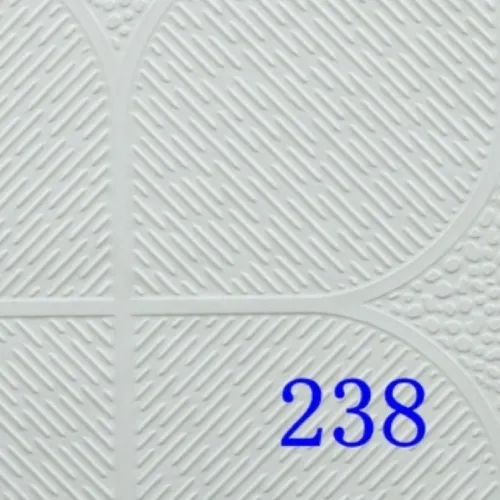Nov . 24, 2024 23:15 Back to list
mineral wool insulation sheets
Understanding Mineral Wool Insulation Sheets Benefits and Applications
Mineral wool insulation sheets, also known as rock wool or stone wool, have gained significant traction in the construction and building industry due to their exceptional thermal and acoustic properties. Made from natural or recycled materials, mineral wool insulation is engineered to provide effective insulation while being environmentally friendly. This article explores the benefits, applications, and characteristics of mineral wool insulation sheets.
What is Mineral Wool?
Mineral wool is produced by melting natural igneous rocks, such as basalt, and spinning the molten material into fine fibers. This process creates a lightweight, fibrous material that can be molded into sheets of various thicknesses. The unique structure of mineral wool provides a combination of thermal resistance, fire resistance, and soundproofing, making it a versatile choice for both residential and commercial applications.
Benefits of Mineral Wool Insulation Sheets
1. Excellent Thermal Insulation One of the primary advantages of mineral wool insulation sheets is their outstanding thermal performance. With a high R-value per inch, mineral wool effectively reduces heat transfer, keeping buildings warm in the winter and cool in the summer. This energy efficiency results in lower heating and cooling costs for homeowners and businesses alike.
2. Fire Resistant Mineral wool is inherently fire-resistant, making it an ideal insulation material for applications where fire safety is a concern. It can withstand high temperatures without melting or releasing toxic fumes, which is crucial for maintaining safety standards in building design.
3. Soundproofing The dense structure of mineral wool insulation sheets provides excellent sound absorption, making them a popular choice for residential buildings, music studios, and commercial spaces where noise control is essential. By reducing sound transmission between rooms or from external sources, mineral wool enhances comfort and privacy.
4. Moisture Resistant Unlike some other insulation materials, mineral wool does not absorb moisture, which helps to prevent issues related to mold and mildew. This moisture resistance makes it suitable for use in damp or humid environments, such as basements and exterior walls.
mineral wool insulation sheets

5. Environmentally Friendly Mineral wool insulation is often made from recycled materials and is fully recyclable at the end of its life span. Its production process also generates significantly less carbon dioxide compared to other insulation materials, contributing to a more sustainable building approach.
Applications of Mineral Wool Insulation Sheets
Due to their versatile characteristics, mineral wool insulation sheets are used across various sectors. In residential construction, they are commonly installed in walls, roofs, and floors to enhance thermal performance and comfort. In commercial applications, they can be found in office buildings, warehouses, and manufacturing facilities, providing necessary insulation and fire safety features.
Additionally, mineral wool is frequently used in industrial settings, where it can be applied as thermal insulation for pipes, boilers, and HVAC systems. The durable nature of mineral wool allows it to withstand harsh conditions while maintaining its insulation properties over time.
Installation and Maintenance
Installing mineral wool insulation sheets is a straightforward process, often carried out by professionals. Proper installation is crucial to maximize its effectiveness in thermal and acoustic insulation. The sheets can be cut to fit snugly into wall cavities, attics, or around piping. While maintenance is minimal, it's essential to check for any signs of wear or damage over time, especially in areas exposed to moisture.
Conclusion
Mineral wool insulation sheets offer an array of benefits, including superior thermal and sound insulation, fire resistance, and sustainability. As construction practices continue to evolve, the demand for energy-efficient and environmentally friendly materials like mineral wool is likely to grow. For builders and homeowners looking to enhance the comfort and safety of their spaces, mineral wool insulation represents a reliable and effective solution.
-
Quality Ceiling Trap Doors & Access Panels | Easy & Secure AccessNewsAug.30,2025
-
Durable Ceiling T Grid Systems | Easy InstallationNewsAug.29,2025
-
PVC Gypsum Ceiling: Durable, Laminated Tiles for Modern SpacesNewsAug.28,2025
-
Pvc Gypsum Ceiling Is DurableNewsAug.21,2025
-
Mineral Fiber Board Is DurableNewsAug.21,2025
-
Ceiling Tile Clip Reusable DesignNewsAug.21,2025







